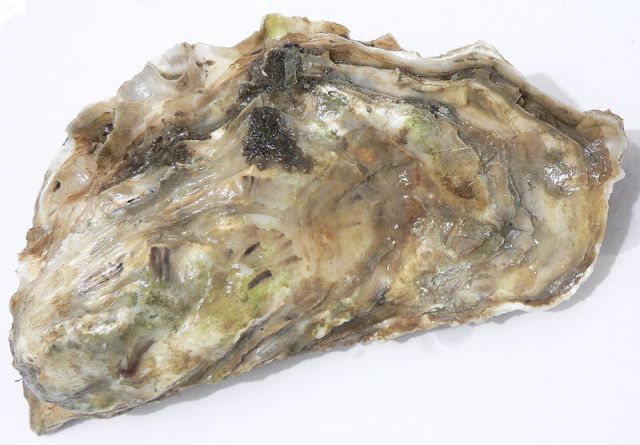Fishing, gathering and wild extraction of oysters, wild "development" on the beaches and discharge of pollutants, cause the disappearance of the oyster reefs. According to a new study, about 85% of oyster reefs have disappeared as a result of human activity

Fishing, gathering and wild extraction of oysters, wild "development" on the beaches and discharge of pollutants, cause the disappearance of the oyster reefs. According to a study published by The Nature Conservancy, about 85% of oyster reefs have disappeared as a result of human activity.
Like corals, so are oysters of various types, especially oysters with two parts, (dukshavtaim bivalves) "build" a reef by attaching hundreds of individuals to rocks and each individual, a reef whose dimensions reach the dimensions of hundreds and thousands of meters, a reef that is a habitat for a wide variety of animals and plants in the marine environment.
According to the study, oyster reefs are one of the most damaged habitats in the marine environment. The oyster reefs off China have almost disappeared in the last 30 years. In Europe the reefs have completely disappeared, half of the oyster population in South America is in danger. Oysters have completely disappeared from Australian waters.
Oyster reefs have been a prominent feature of bodies of water in temperate regions around the world, like coral reefs, oyster reefs are also vital and vital to the continued existence of a healthy and fertile marine environment. Oyster reefs provide food and shelter for fish, crabs and birds, oysters filter water and remove toxins from the aquatic system, oyster reefs are "shock absorbers" against wave and storm activity.
Those who understand food say that when you eat a wild oyster (which does not come from a cultured crop) it is most likely that it comes from the areas on the east coast of North America. In most of these areas the condition of the oyster reefs is very bad. Centuries of vigorous fishing and oyster harvesting have been aggravated by contemporary damage to the beaches, which brings the oyster reefs beyond the ability to fulfill their correct environmental "role" and beyond the threshold that will allow regeneration.
Mary Seddon is chairwoman of the International Union for Conservation of Nature's Species Survival Commission Mollusk Specialist Group. According to her, although it is known that the damage to the oysters began hundreds of years ago, the researchers did not expect such sad results. 85% of the areas where there were oyster reefs were damaged to the point of complete disappearance.
Despite the surprising results, the researchers say that it is possible to correct the situation and restore the system by properly managing the oyster reefs and the various factors through a reduction in the discharge of pollutants and sediments, protection that will be anchored in international treaties, stopping the "sowing" of sick oysters, are the important actions that must be taken. The study indicates that in "areas where positive preservation and conservation measures have been taken, it has been proven that the situation can be returned to its original state and bring about a significant improvement in the health of the oyster reefs and thus, an improvement in the general condition of the aquatic environment."
On a personal note...recommendation: The fact that oysters are collectors and stores of toxins has been known for a long time, therefore their effectiveness with regard to different beliefs and traditions....doubtful, at the same time there are a large number of edible oyster species, most of which are raised in farms, therefore, those who Anyone who wants to eat oysters and does not want to indirectly cause environmental damage, will make sure to ask for and eat only farm-raised oysters. Until today I have written why, for the sake of protecting the environment (and ourselves) it is not worthwhile drink bottled water eat caviar, eat shrimp, sear meat Now a recommendation to avoid oysters, where will we end up... ?

3 תגובות
We're fine, it's not kosher anyway.
Apparently the gourmet mollusk fans have nothing to say.